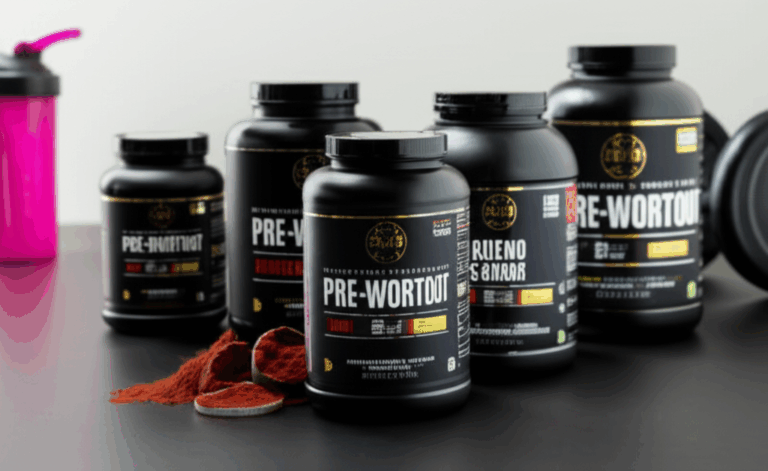Feeling sluggish before a workout? Struggling to maintain intensity or focus through those last few reps? Pre-workout supplements are a popular tool in the fitness community, designed to give you that extra “oomph” to push harder and potentially achieve better results. These multi-ingredient dietary supplements aim to boost energy, enhance performance, and sharpen focus, effectively changing how you approach and experience your training sessions.
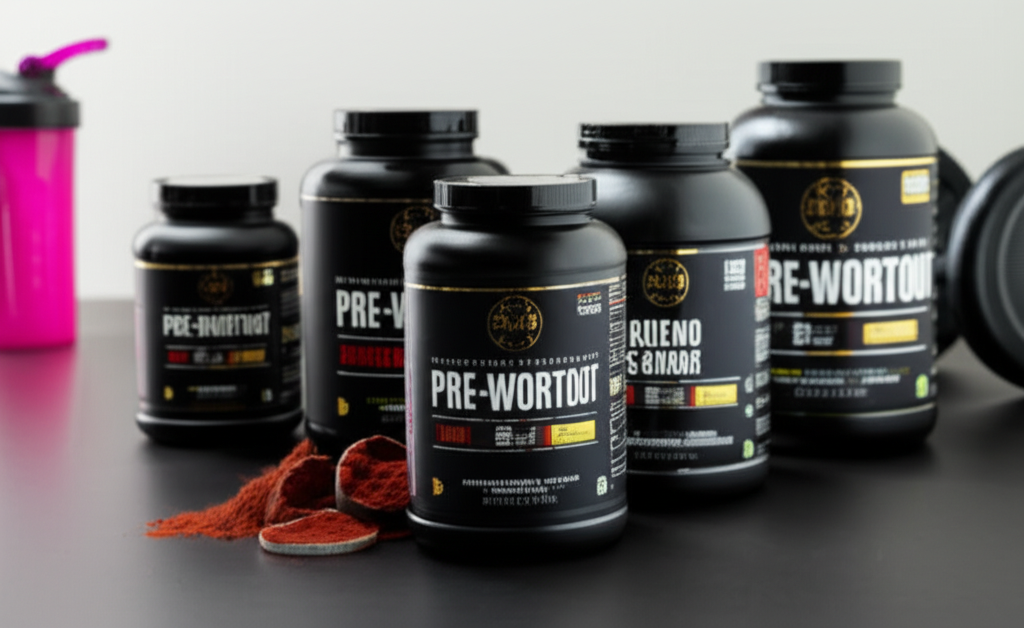
Understanding Pre-Workout Supplements
Pre-workout supplements, often referred to as multi-ingredient pre-workout supplements (MIPS), are formulations taken before exercise to optimize physical performance. Available in powders, pills, gummies, or ready-to-drink beverages, they contain a blend of ingredients targeting various aspects of your workout. The goal is straightforward: to provide a temporary boost that helps you train harder and longer.
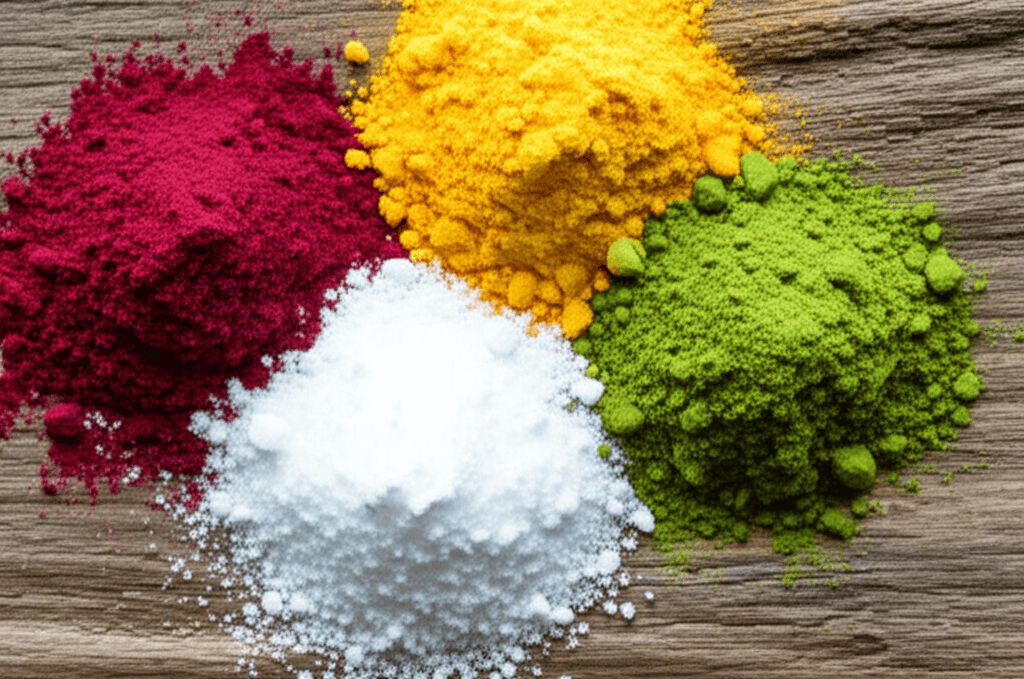
Key Ingredients and Their Impact on Your Workout
The effectiveness of a pre-workout supplement largely depends on its ingredients and their dosages. While formulations vary widely, several common components are responsible for the perceived benefits:
Caffeine for Energy and Focus
Caffeine is arguably the most prevalent and well-researched ingredient in pre-workouts. As a central nervous system stimulant, it significantly boosts energy levels, enhances mental alertness, and improves focus during exercise. Caffeine can also help reduce the perception of effort, making tough workouts feel more manageable, and may improve muscle power and endurance. Most pre-workouts contain between 150-300 mg of caffeine per serving, equivalent to 1.5 to 3 cups of coffee.
Creatine for Strength and Power
Creatine is a natural compound that helps replenish adenosine triphosphate (ATP) stores, the primary energy source for muscle contractions. When combined with exercise, creatine supplementation can significantly improve strength, power output, and lean body mass, especially during high-intensity, short-burst activities like weightlifting.
Beta-Alanine for Endurance and Fatigue Reduction
Beta-alanine is an amino acid that helps buffer lactic acid buildup in muscles, which is responsible for the burning sensation and fatigue during intense exercise. By increasing carnosine levels in muscles, beta-alanine allows you to push harder and longer, potentially increasing the number of reps or duration of high-intensity efforts. A common side effect of beta-alanine is a harmless tingling sensation on the skin, known as paresthesia, which indicates the supplement is working.
Branched-Chain Amino Acids (BCAAs) for Muscle Support
BCAAs, including leucine, isoleucine, and valine, are essential amino acids that play a crucial role in muscle protein metabolism. They can help prevent muscle breakdown during exercise, promote protein synthesis, and may aid in reducing muscle soreness and fatigue, thus supporting muscle growth and faster recovery.
L-Citrulline for Enhanced Blood Flow and Pumps
L-Citrulline, or citrulline malate, is an amino acid that boosts nitric oxide production in the body. Nitric oxide helps widen blood vessels, increasing blood flow, oxygen, and nutrient delivery to working muscles. This can lead to improved endurance, reduced muscle fatigue, and the sought-after “muscle pump” sensation during workouts.
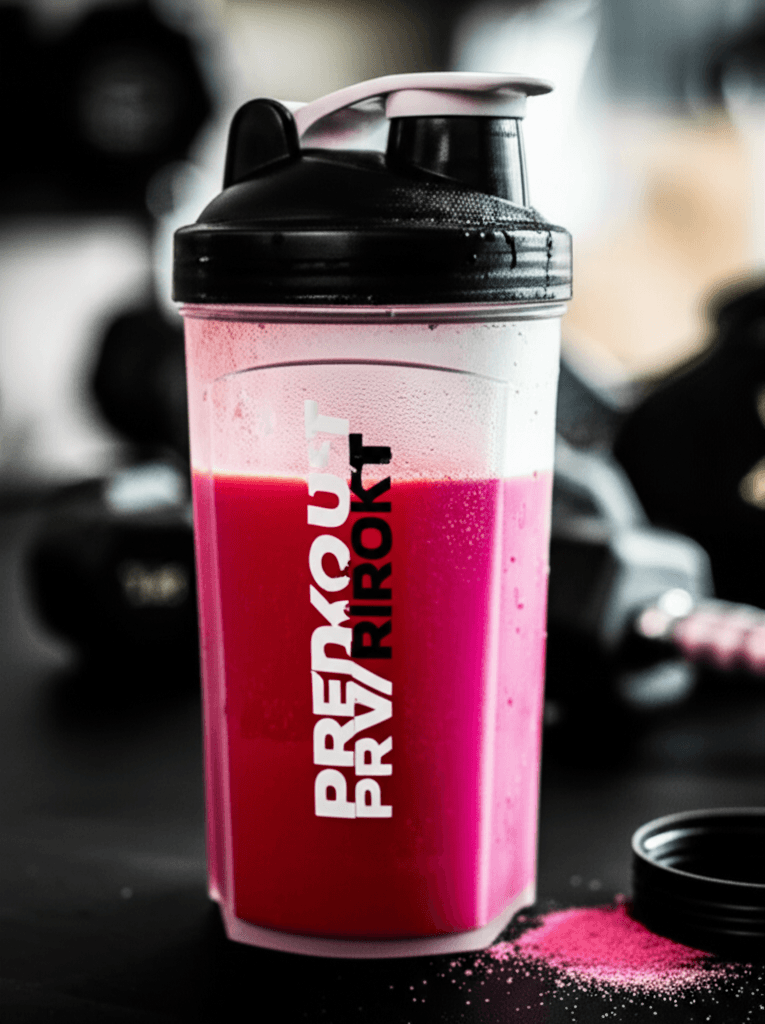
How Pre-Workout Can Change Your Workout Routine
Incorporating a pre-workout supplement can significantly alter your training experience, offering several potential advantages:
Increased Energy and Motivation
On days when motivation is low or energy levels are lagging, a pre-workout can provide the necessary jolt to get started and sustain your effort. The stimulant effect, primarily from caffeine, helps combat fatigue and increases alertness, making you feel more ready to tackle your workout.
Enhanced Performance and Endurance
Ingredients like creatine and beta-alanine directly contribute to improved physical performance. Creatine allows for greater strength and power output in anaerobic activities, while beta-alanine helps delay muscle fatigue, enabling longer and more intense training sessions. This can translate to more reps, heavier lifts, or extended cardio sessions.
Sharpened Mental Focus and Concentration
Beyond physical energy, many pre-workouts include ingredients that enhance cognitive function. Caffeine, for instance, improves concentration and reaction time, allowing you to maintain better form and mental engagement throughout your exercise. This improved focus can also contribute to injury prevention.
Better Muscle Pumps and Nutrient Delivery
Components like L-citrulline promote vasodilation, increasing blood flow to muscles. This not only creates a more pronounced “pumped” feeling but also ensures that muscles receive a more efficient supply of oxygen and nutrients, which is crucial for performance and recovery.
Accelerated Recovery
While primarily taken before a workout, some pre-workout ingredients, such as BCAAs, can also help reduce exercise-induced muscle damage and soreness, contributing to faster post-workout recovery.
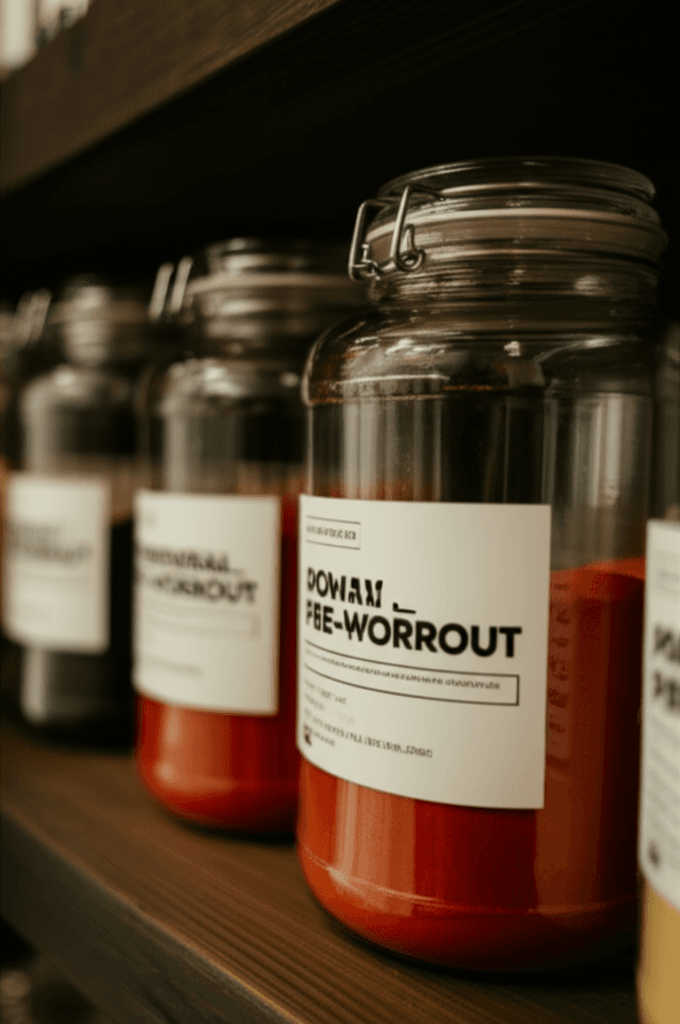
Considerations and Potential Downsides
While pre-workouts offer compelling benefits, it’s crucial to be aware of potential side effects and use them responsibly.
Jitters, Anxiety, and Sleep Disturbances
High doses of caffeine, a common ingredient, can lead to jitters, anxiety, headaches, increased heart rate, and restlessness. Taking stimulant-based pre-workouts too close to bedtime can also significantly disrupt sleep patterns.
Digestive Issues
Some ingredients, including high doses of magnesium, sodium bicarbonate, taurine, and caffeine, may cause digestive upset such as nausea, cramps, or diarrhea. Ensuring adequate hydration when mixing and consuming the supplement can help mitigate these effects.
Tingling Sensation (Paresthesia)
The harmless tingling sensation caused by beta-alanine can be uncomfortable for some individuals, though it typically subsides within an hour or two.
Building Tolerance and Dependency
Regular, continuous use of pre-workouts, especially those with high caffeine content, can lead to tolerance, requiring higher doses to achieve the same effects. This can result in a dependency where individuals feel unable to perform workouts without the supplement. It’s often recommended to cycle off stimulant-based pre-workouts every 3-6 months for 1-2 weeks to reset tolerance.
Lack of Regulation and Proprietary Blends
The supplement industry is not strictly regulated by the FDA, meaning the safety and efficacy of ingredients or their listed amounts aren’t always approved. Many products use “proprietary blends,” which don’t disclose the specific amounts of each ingredient, making it difficult to assess effectiveness or potential risks.
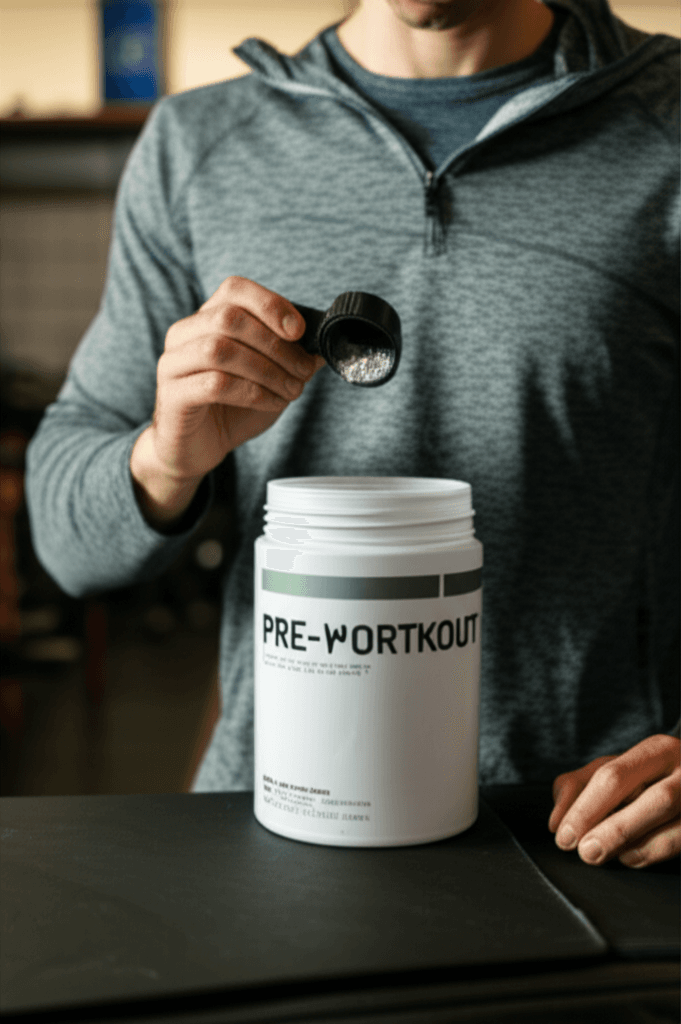
Choosing and Using Pre-Workout Safely
If you decide to incorporate pre-workout into your routine, smart choices and practices are essential:
Identify Your Goals
Consider what you want to achieve. Are you looking for an energy boost, improved endurance, or increased strength? Different pre-workouts cater to different needs.
Research Ingredients and Dosages
Look for products that clearly list their ingredients and their specific amounts, avoiding “proprietary blends.” Prioritize supplements with science-backed ingredients like caffeine, creatine, beta-alanine, and L-citrulline at effective doses.
Check for Third-Party Testing
To ensure safety and quality, choose supplements that have been tested and certified by independent third-party organizations like NSF International or U.S. Pharmacopeia (USP). This verifies that the product contains what it claims and is free from contaminants or banned substances.
Start with a Low Dose
Especially if you’re new to pre-workouts or sensitive to stimulants, begin with a half-serving to assess your tolerance before increasing the dosage.
Timing is Key
Most pre-workouts are best taken 30-60 minutes before your workout to allow time for the ingredients to absorb and kick in. Be mindful of caffeine content and avoid taking stimulant-based pre-workouts within 6 hours of bedtime to prevent sleep disturbances.
Consider Stim-Free Options
If you are sensitive to caffeine or train late in the day, stimulant-free pre-workouts offer benefits from other performance-enhancing ingredients without the jitters or sleep disruption.
Don’t Rely Solely on Supplements
Remember that pre-workouts are supplements, not replacements for fundamental health practices. A balanced diet, adequate hydration, sufficient sleep, and a consistent workout routine remain the pillars of fitness success.
Pre-workout supplements can be a powerful tool to enhance your workout routine by boosting energy, focus, endurance, and strength. By understanding their ingredients, potential benefits, and risks, you can make an informed decision to safely and effectively integrate them into your fitness journey, ultimately helping you push past plateaus and achieve your fitness goals.




